Middle East: Combining health and economic responses to tackle Covid-19
To limit the health, social and economic consequences of the pandemic in Lebanon, Iraq and Syria, there are two priorities: prevent the potential spread of the virus by equipping health facilities and training their staff, and ensure the livelihood of the most vulnerable populations, particularly displaced persons.
Back in March 2020, Expertise France took action under the cooperation projects it is implementing with financing from the French State and European Union in these three countries, in line with the recommendations of the World Health Organization (WHO) on the prevention and fight against Covid-19. In keeping with its action in the region, Expertise France has been working in close coordination with local partners responsible for implementing activities on the ground.
Raising awareness to prevent the spread of Covid-19
In Syria, although the official figures on the number of people affected by Covid-19 so far remain low, the threat of a spread of the epidemic poses a risk for people: in late June 2020, the United Nations stressed that Syria’s health system was not prepared for a large-scale outbreak. For example, in the Idlib region, in the north-west of the country, the Covid-19 crisis could exacerbate the humanitarian crisis which has led to the displacement of over 900,000 people since December 2019.
To prevent the spread of the pandemic in the country, the top priority is to raise awareness among inhabitants and deliver the materials required to fight against Covid-19.
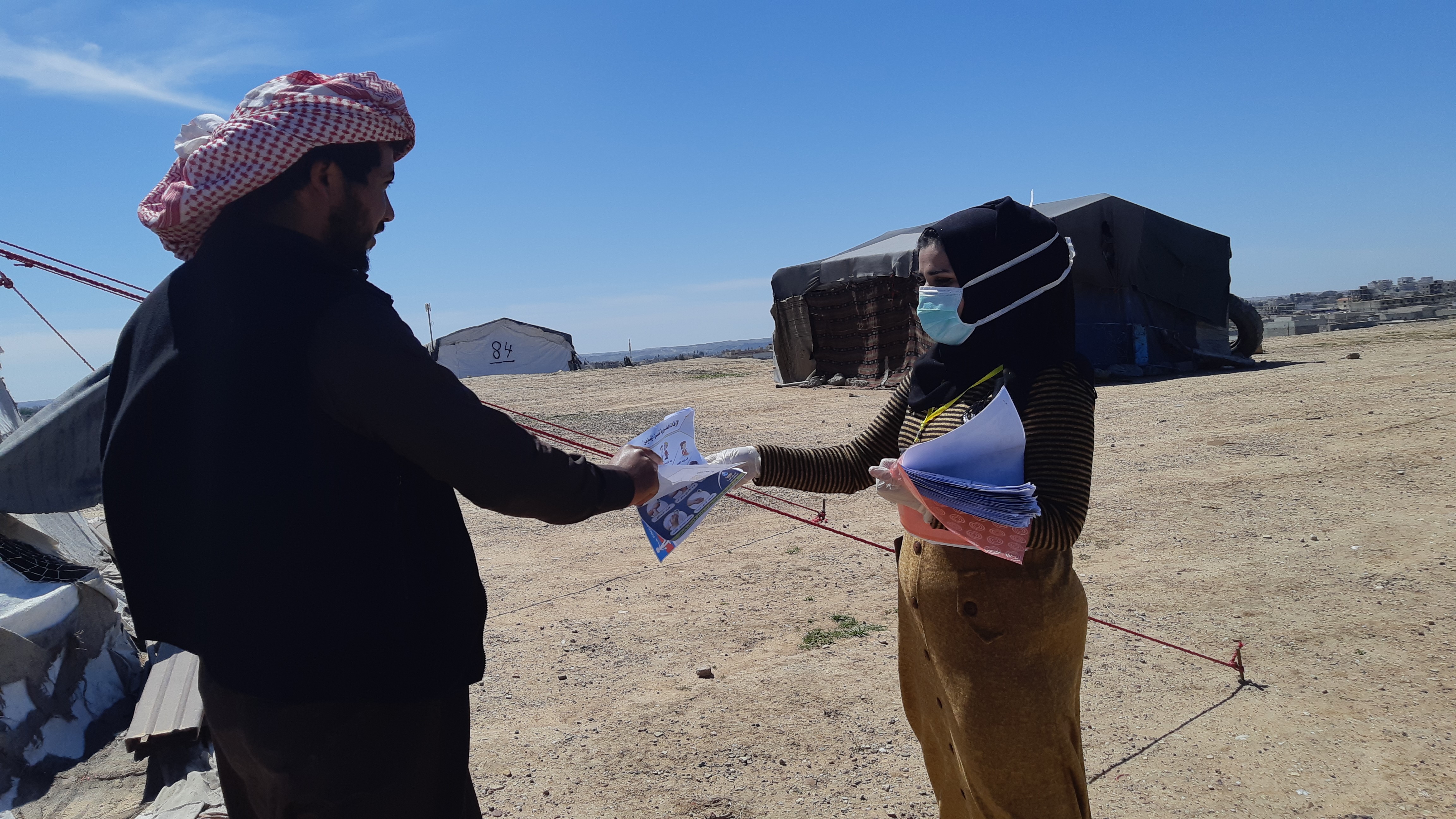
In the north-west of Syria, awareness-raising campaigns have been organised, prevention measures have been reinforced and hygiene kits have been distributed alongside each activity of the RRM-Initiative programme in Gaziantep, which is implemented by Expertise France with European Union financing.
Back in the spring, Expertise France supported the action of partner NGOs in the north-east of Syria under the INES project, which is financed by the Crisis and Support Centre (CDCS) of the French Ministry for Europe and Foreign Affairs. Here again, the NGOs have also distributed hygiene kits (including soap and water cans) and leaflets containing WHO recommendations, both in the areas where they operate and in a refugee camp.
Strengthening the capacity for action of caregivers
In addition to the awareness-raising activities, Expertise France has helped strengthen the capacities of caregivers.
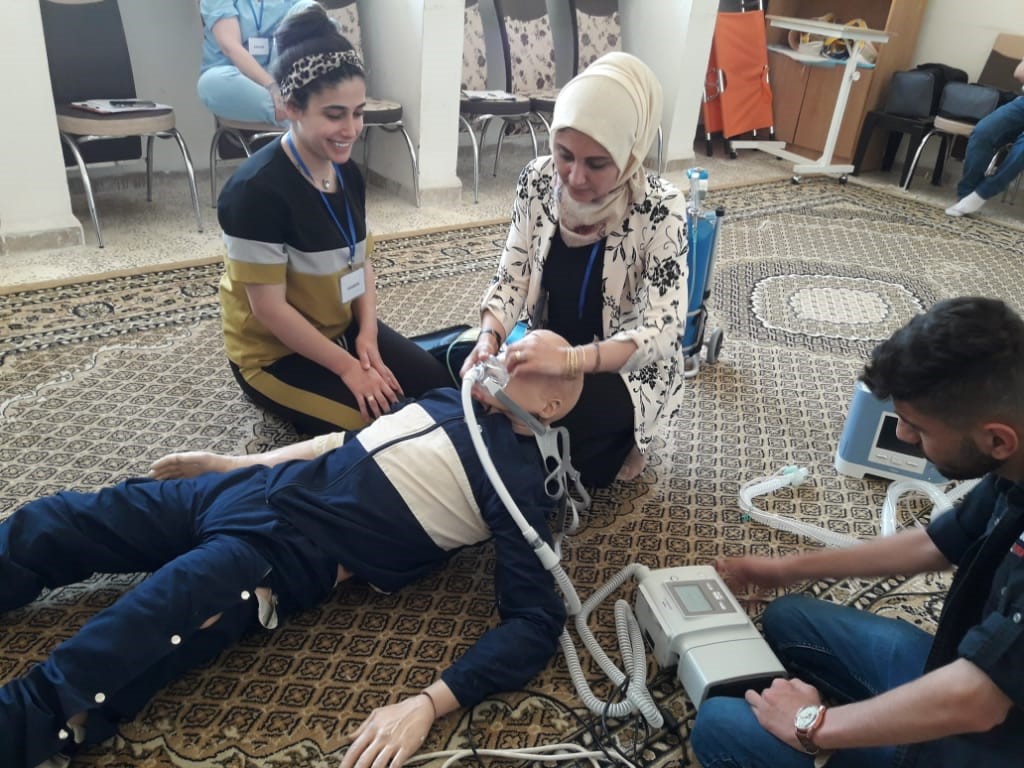
Under the HERNES project, which is based on strengthening the health response in north-east Syria, Expertise France has worked with a partner NGO in the field to organise training in intensive care and ventilation. This training aimed to strengthen the theoretical and practical knowledge of caregivers to help them cope with the influx of patients with respiratory distress – the main symptom of serious cases of Covid-19. A hundred people working for five medical NGOs have been trained.
These training activities have been completed with the delivery of the materials required to fight against Covid-19. In the healthcare centres supported by the HERNES project, the assistance has involved establishing protocols to reduce the risk of the transmission of the virus (physical distancing, awareness-raising messages, patient triage…) and purchasing personal protective equipment (masks, goggles, gowns…) to protect caregivers and prevent the infection of healthy patients. The HERNES project is cofinanced by the European Union and Crisis and Support Centre (CDCS) and is also working on infection prevention and control (IPC) and on the management of medical waste, which is potentially infectious.
The same approach to equip health facilities has been taken in the north-west of Syria: under the RRM-Initiative programme in Gaziantep, additional European Union financing has been used to purchase and deliver an oxygen generator and respiratory equipment for Idlib National Hospital to facilitate care for patients with respiratory failure. In addition, the respiratory equipment of 11 other healthcare centres has been rehabilitated.
Emergency support for the most vulnerable populations
Another component of the emergency response involves assisting vulnerable populations who have been deprived of income following the lockdown measures and economic slowdown. The RRM-Initiative programme in Gaziantep is working on this by supporting local economic activity and food security. This is also the case with the Shabake project in Lebanon. In the spring, it supported the initiatives of three partner associations working on food security for vulnerable populations in the governorates of Akkar, South Lebanon and Bekaa.
The country was already suffering from an economic and financial crisis and has been hard hit by the socioeconomic consequences of the pandemic, which have been exacerbated by the Beirut Port explosions on 4 August. Many residents are faced with a sharp fall in their purchasing power and, according to the World Bank, 45% of the population is now living under the poverty line. Through the reallocation of funds from the Shabake project, over 1,700 food baskets were distributed to over 1,200 households in Lebanon between May and July 2020 by Akkar Network for Development (in the Akkar region), Association Najdeh (in the Ain El-Hilweh refugee camp, in South Lebanon) and Fair Trade Lebanon (in the centre and west of Bekaa). Information leaflets about Covid-19 were given with these food baskets.
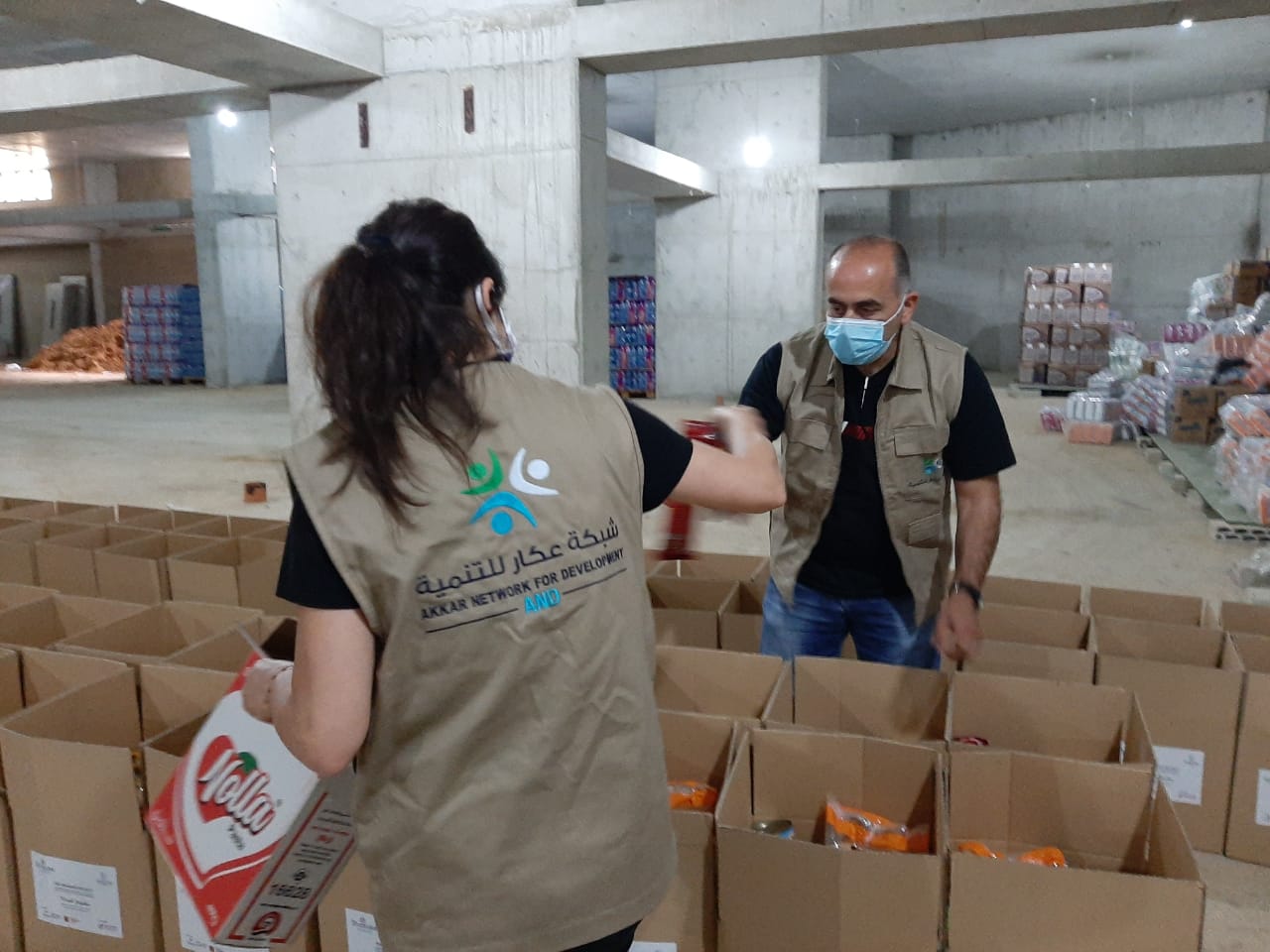
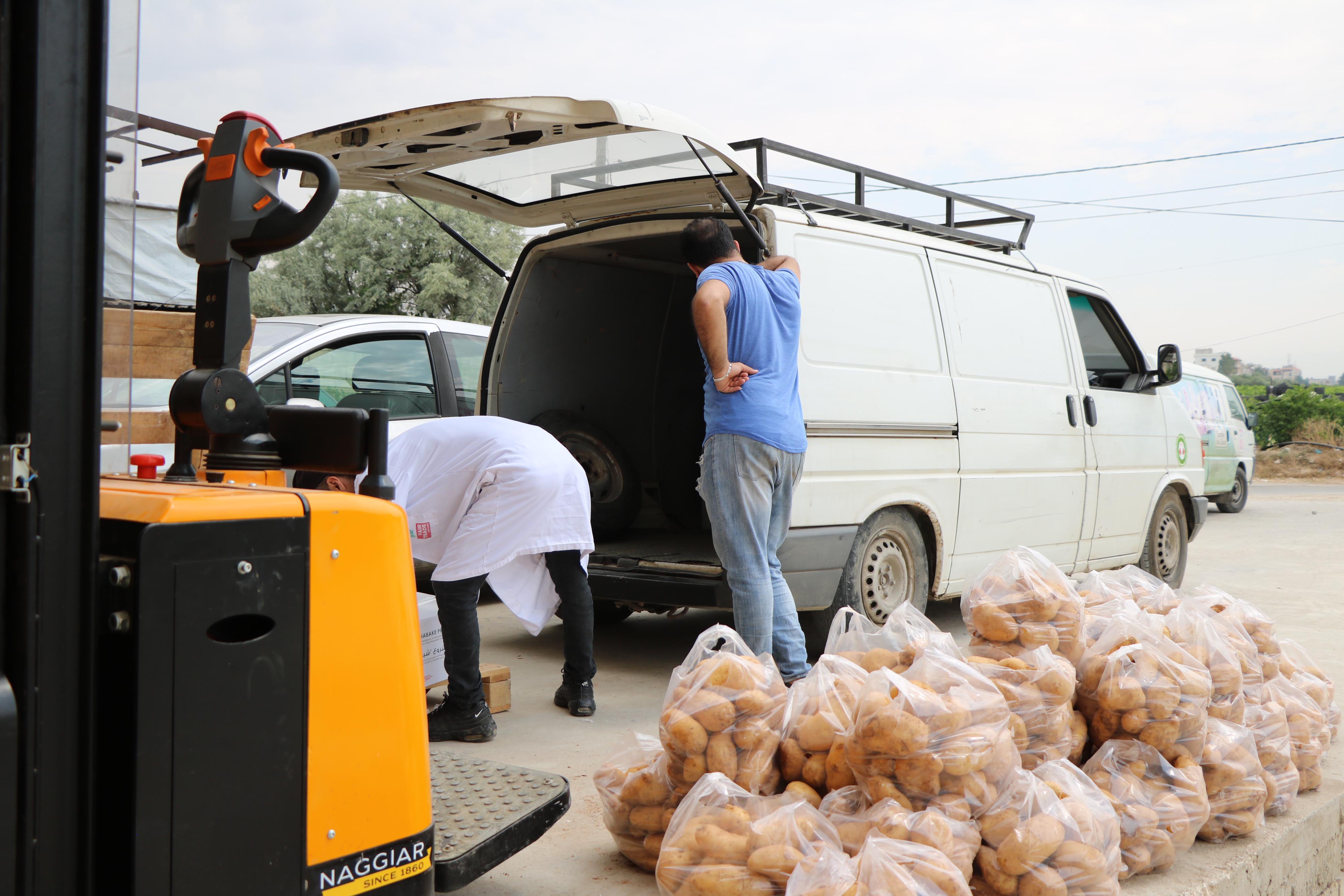
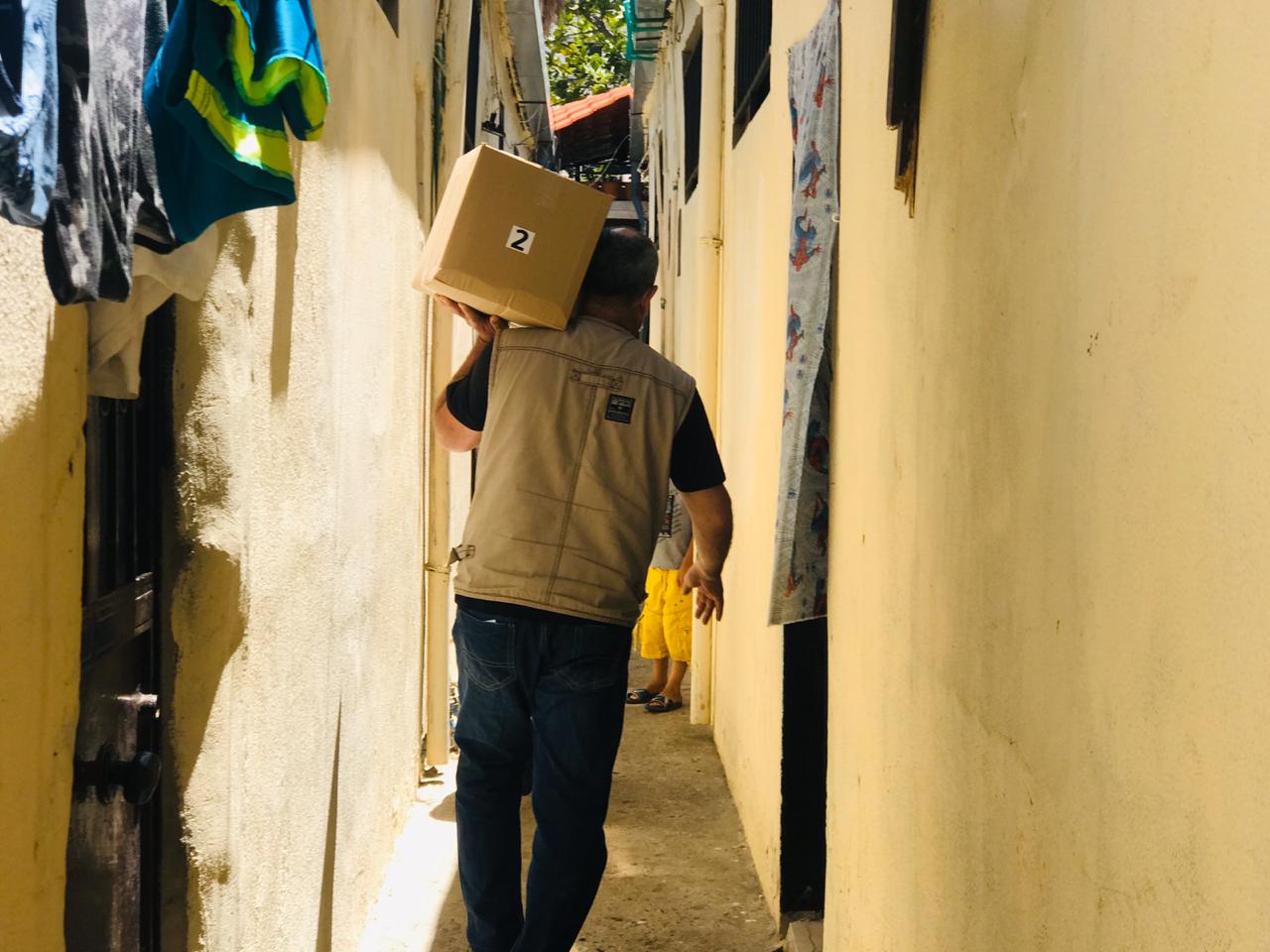
This immediate response to the epidemic was necessary to ensure that the basic nutritional needs of communities affected by the health crisis and its economic consequences are met and to inform and raise awareness about the new coronavirus disease, in line with WHO recommendations.
Contributing to reducing vulnerability
This emergency mobilisation will be extended in the coming months with the implementation of projects to reduce the vulnerability of people living in Lebanon (livelihoods, domestic or family violence…), working with the seven partner associations of the Shabake project. These associations are central to this project financed by Agence Française de Développement (AFD) and implemented by Expertise France, which aims to strengthen the role of Lebanese civil society in crisis prevention and management. Other initiatives are also being considered to contribute to the emergency response following the explosions on 4 August then, in the medium term, the reconstruction and return of basic services.
Along the same lines, in Ninive Governorate (Iraq), Expertise France and the NCCI platform of associations have selected two Iraqi civil society organisations to help them mitigate the socioeconomic effects of Covid-19 and improve living conditions for vulnerable households. Al Rakeezeh Foundation for Relief and Development (RRD) and Critical Needs Support Foundation (CNSF), which are specialised in the implementation of projects that contribute to food security and the economic recovery of territories, will benefit from a grant under the Yanhad project. This EUR 6.5m project financed by the European Union and Crisis and Support Centre (CDCS) of the French Ministry for Europe and Foreign Affairs aims to work on social cohesion in Iraq, particularly among young people, by supporting the civic engagement and entrepreneurship of young people in the country.
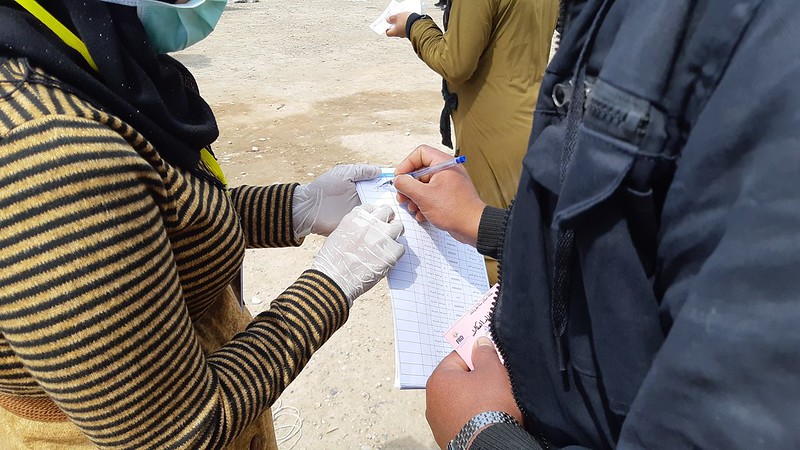
 Credits: RR / Association Najdeh / Fair Trade Lebanon / Akkar Network for Development
Credits: RR / Association Najdeh / Fair Trade Lebanon / Akkar Network for Development
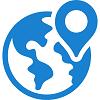 Find out more about Expertise France in Iraq: www.expertisefrance.fr/en/irak
Find out more about Expertise France in Iraq: www.expertisefrance.fr/en/irak
 Find out more about Expertise France in Lebanon: www.expertisefrance.fr/en/liban
Find out more about Expertise France in Lebanon: www.expertisefrance.fr/en/liban

